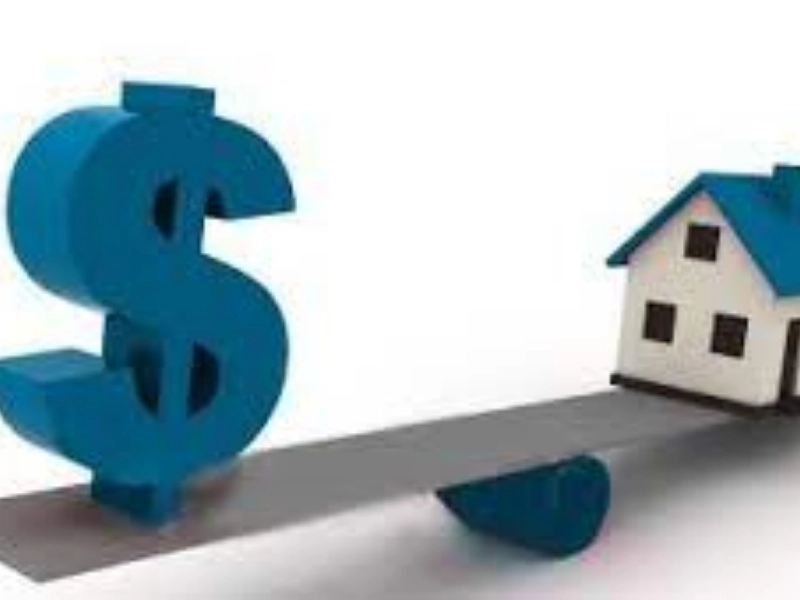Should I Refinance My Mortgage? When Is The Right Time?
Your monthly payments can be reduced by refinancing your mortgage, which will also lower your interest rate. Before committing, though, it's crucial to carefully assess your financial condition and ambitions. Refinancing your mortgage can help you obtain home equity, reduce debt, extend the duration of your loan, and/or obtain a better interest rate.
1. Low Interest Rates

2. Your credit score is high.
 Refinancing your mortgage might be a wonderful way to save money if you have decent credit. You might be able to acquire a lower interest rate by refinancing, which would cut your monthly payments and enable you to become a house owner sooner.
The precise rates you may be eligible for are contingent upon several factors, including the duration of your current mortgage and your credit score. But a lot of lenders release sample rates, so you could get a broad sense of what's out there. The majority of credit reporting agencies have a 45-day interval during which several lender inquiries do not count as one cumulative inquiry, so keep that in mind if you want to shop around.
If you have an adjustable-rate mortgage (ARM) that is set to reset to a higher rate, refinancing to alter the type of mortgage you have can be a wise decision. You can reduce interest expenses and lock in a stable rate by converting to a fixed-rate mortgage.
Refinancing your mortgage might be a wonderful way to save money if you have decent credit. You might be able to acquire a lower interest rate by refinancing, which would cut your monthly payments and enable you to become a house owner sooner.
The precise rates you may be eligible for are contingent upon several factors, including the duration of your current mortgage and your credit score. But a lot of lenders release sample rates, so you could get a broad sense of what's out there. The majority of credit reporting agencies have a 45-day interval during which several lender inquiries do not count as one cumulative inquiry, so keep that in mind if you want to shop around.
If you have an adjustable-rate mortgage (ARM) that is set to reset to a higher rate, refinancing to alter the type of mortgage you have can be a wise decision. You can reduce interest expenses and lock in a stable rate by converting to a fixed-rate mortgage.
3. You Wish to Combine Your Debts
 There are a number of justifications for debt consolidation, such as:
Consolidating your debt can simplify your finances and make it simpler to keep track of your monthly spending by combining many payments into one. By paying a lower interest rate than you presently do on your loans, it also enables you to save money.
Selecting a lender who does not impose prepayment penalties is important whether you are looking for a home equity line of credit or a debt consolidation loan (additional fees are charged when you pay off your loan before its due date). The total amount of those fines may exceed the savings from refinancing your mortgage.
With a mortgage refinance, you can adjust the loan's duration, interest rate, and amount of equity you can withdraw from your house. It's advisable to give your goals serious thought before choosing a mortgage refinance strategy. The best option for you will depend on your financial status, the status of the economy, and the rate at which you are getting a mortgage.
There are a number of justifications for debt consolidation, such as:
Consolidating your debt can simplify your finances and make it simpler to keep track of your monthly spending by combining many payments into one. By paying a lower interest rate than you presently do on your loans, it also enables you to save money.
Selecting a lender who does not impose prepayment penalties is important whether you are looking for a home equity line of credit or a debt consolidation loan (additional fees are charged when you pay off your loan before its due date). The total amount of those fines may exceed the savings from refinancing your mortgage.
With a mortgage refinance, you can adjust the loan's duration, interest rate, and amount of equity you can withdraw from your house. It's advisable to give your goals serious thought before choosing a mortgage refinance strategy. The best option for you will depend on your financial status, the status of the economy, and the rate at which you are getting a mortgage.
4. You'd Like to Take Advantage of Your Home's Equity
 Homeowners can pay off debt, finance large purchases like renovation projects, or cover unforeseen bills using their equity. Homeowners should carefully explore their options before deciding to refinance their mortgage, though.
Refinancing a mortgage is the process of getting a new mortgage, typically with changing conditions, to replace the one the homeowner currently has. A reduced interest rate, a shorter loan term, access to home equity, or a move from an adjustable to a fixed-rate mortgage are a few examples of this.
You can divide your home's entire market value by the amount of your mortgage to find out how much equity you have. Lenders often won't allow you to borrow more than 80% of the equity in your house.
Determine your goals before deciding if refinancing your mortgage is a good choice. A savvy homeowner is constantly searching for methods to lower debt, increase equity, and save costs. These and other objectives can be met with the aid of mortgage refinancing. However, there are a number of variables to consider, one of which is the current low mortgage rates.
Homeowners can pay off debt, finance large purchases like renovation projects, or cover unforeseen bills using their equity. Homeowners should carefully explore their options before deciding to refinance their mortgage, though.
Refinancing a mortgage is the process of getting a new mortgage, typically with changing conditions, to replace the one the homeowner currently has. A reduced interest rate, a shorter loan term, access to home equity, or a move from an adjustable to a fixed-rate mortgage are a few examples of this.
You can divide your home's entire market value by the amount of your mortgage to find out how much equity you have. Lenders often won't allow you to borrow more than 80% of the equity in your house.
Determine your goals before deciding if refinancing your mortgage is a good choice. A savvy homeowner is constantly searching for methods to lower debt, increase equity, and save costs. These and other objectives can be met with the aid of mortgage refinancing. However, there are a number of variables to consider, one of which is the current low mortgage rates.









